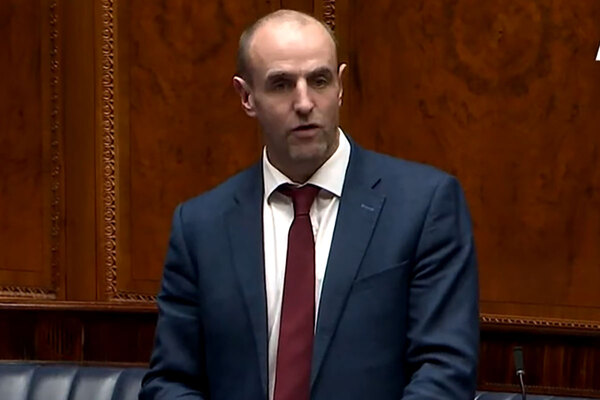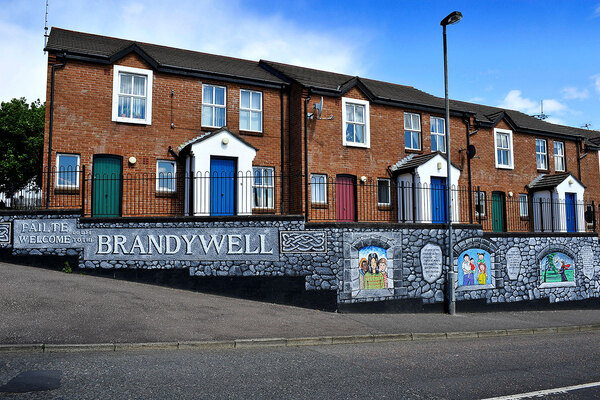You are viewing 1 of your 1 free articles
Housing bodies outline ‘grave concerns’ over huge cut to social housing starts in Northern Ireland
Housing and homelessness bodies in Northern Ireland have outlined their “grave concerns” that the Department for Communities (DfC) will only be able to fund up to 400 new social home starts in 2024-25, a fall of 73.4%.
In a letter to the first minister Michelle O’Neill and deputy first minister Emma Little-Pengelly, they said “the decision to impose such a drastic cut to the capital budget for the Department for Communities leading to such a low number of new starts will have devastating consequences both socially and economically”.
The four bodies, which include the Northern Ireland Federation of Housing Associations (NIFHA), Chartered Institute of Housing (CIH) Northern Ireland, Homeless Connect and Housing Rights, said that if the budget was the final allocation of money for new starts, 1,106 fewer social homes will be started in 2024-25 compared with 2023-24, a drop of 73.4%.
The DfC capital budget was cut by 38% in the Northern Ireland budget.
The budget, approved by the executive, allocated the DfC £133m in capital funding for 2024-25, down from £216m last year. The capital budget for the department, which is responsible for housing, funds the Social Housing Development Programme.
Last week, officials revealed to the communities committee that there will only be enough funding for a maximum of 400 social housing starts this year.
In the letter, the housing bodies, which previously wrote to the ministers outlining their concerns around the budget cuts, said: “The number of social housing new starts over the last four years has been as follows: 2,403, 1,713, 1,956 and 1,506.
“This is an average of 1,894 over the last four years. In an answer to an Assembly question, the minister for communities Gordon Lyons MLA outlined that the target he had set for social housing new starts in 2024-25 was 2,000 homes.”
They said the news on the starts “will only allow for up to 20% of that target to be met”.
The bodies wrote that the housing and homelessness sectors were “shocked at this deeply insufficient figure for social housing new starts”.
“For many of the 47,000 plus households on the social housing waiting list, over 28,000 of whom have been assessed as having homelessness status, this news will come as a hammer blow for their hopes of accessing a social home.
“While the impact will not be felt immediately, this extremely low figure of social housing new starts will in the medium term lead to a constriction of housing supply. Without adequate housing supply, you cannot prevent and reduce homelessness,” they said.
They said the homelessness system was already under “unprecedented pressure”, with more households living in temporary accommodation than at any time in living memory.
Nicola McCrudden, chief executive of Homeless Connect, said: “Constraining housing supply through underinvestment in social housing will only pile more pressure on an already fragile housing system.
“It will be the most deprived households in this society who will pay the price if additional resources are not found to invest in the Social Housing Development Programme.”
Kate McCauley, chief executive of Housing Rights, pointed out that “there continues to be serious pressure on people renting privately to afford their homes, as they face unprecedented and rapid rent price rises”.
Seamus Leheny, chief executive of NIFHA, said: “In reality, the housing waiting list and the social housing budget are going in different directions, at a rapid pace.
“While figures showed an 18% increase in the number of applicants on the waiting list over the last 10 years, the budget available for new build social housing is shrinking.
“If this is not addressed, then the assembly is effectively waving a white flag and accepting that we cannot realistically provide housing for our citizens in need.”
Justin Cartwright, national director of CIH Northern Ireland, said the cut to social housing new starts was “not just a blow” to those currently waiting for a home, but a “missed opportunity for the future of our economy and construction sector”.
He said: “By significantly reducing new builds, we risk losing skilled workers from the housing sector. These are the very professionals who will be needed to ramp up construction again in the coming years. A short-term saving risks creating a long-term problem.”
A DfC spokesperson said: “The minister has acknowledged the challenging budget situation faced by DfC, and all departments in the executive.
“He has also outlined his disappointment that the capital funding does not exist to build more social homes.
“As work continues to protect the range of essential services within the department’s remit, the minister will continue to make the case for more funding to address the growing housing need.
“Alongside this, targeted engagement is ongoing to consider the impact for the housing association sector and to discuss a range of housing issues.
“The consultation on proposed DfC budget allocations opens this week and the department will engage directly with key stakeholders.
“All responses will feed into the decision-making process going forward, and help to shape the broad range of public services which the department delivers.”
The Northern Ireland Executive has also been contacted for comment.
New figures released last month showed that the number of households on Northern Ireland’s social housing waiting list had risen by nearly 5% in the space of a year.
Sign up for our Northern Ireland bulletin
Already have an account? Click here to manage your newsletters












